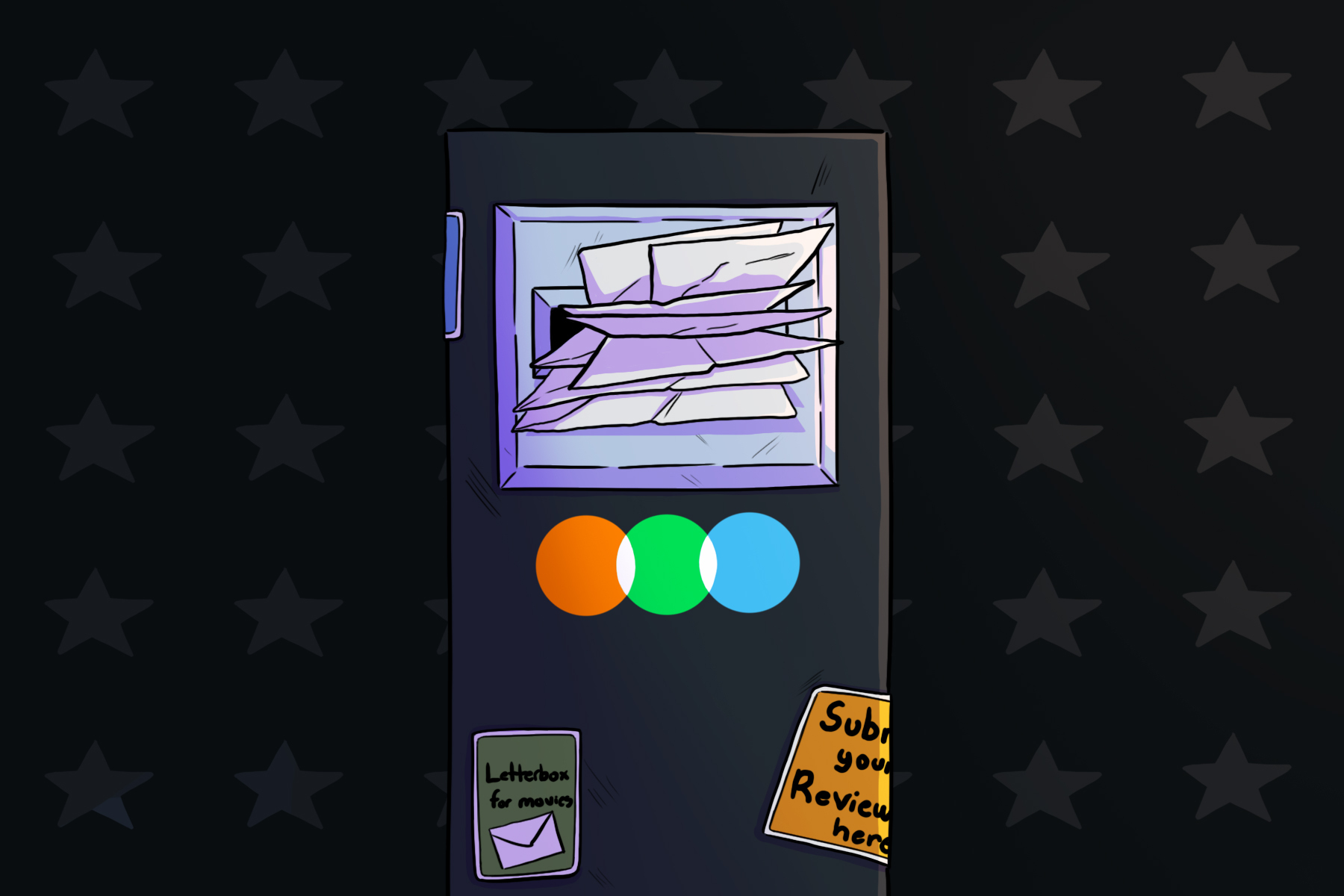Both film lovers and casual viewers alike have been using Letterboxd to keep track of what they’ve been watching. This easy-to-navigate social media platform acts as a virtual film diary, allowing viewers to review films and read what friends, critics and even actors have to say about them.
Letterboxd was created in 2011 by Matthew Buchanan and Karl von Randow, two web designers based in New Zealand. The name is derived from the term “letterboxing,” which is defined as “the practice of transferring film shot in a widescreen aspect ratio to standard-width video formats while preserving the film’s original aspect ratio.” Buchanan and von Randow selected it because of their love for the widescreen format.
The genesis of the platform came from the creators’ frustrations that film-centric websites such as IMDB and Rotten Tomatoes lacked the interactive elements of social networks like Twitter and Tumblr. There wasn’t a designated social network for moviegoers to connect online. They set out to fill the gap, and thus, Letterboxd was born.
The Letterboxd website aptly describes itself as, “Like Goodreads for movies.” Users can treat the platform as a virtual film diary, logging each film or limited series that they finish. They can add ratings on a one to five star scale and even a “like” that will appear in the form of an orange heart. Entries on Letterboxd range from serious to silly, with some opting to write reviews while others choose to comment on a certain movie detail.
One user’s review of “The Exorcist” read, “Scary, but less scary than heartbreaking, suffused with grief and guilt and dread, with the sense that there’s no system truly prepared to combat madness or pain, there’s only the trial and error, the compromise, of barely surviving them.” Another, however, simply said, “not the nickelodeon slime coming out of her mouth.” Despite their differences, both reviews capture the film — one for its emotional impact, the other for the special effects.
Users also have the ability to tag diary entries however they please. Personally, I mark whether or not a movie made me cry, but most people use it for things like marking who they watched the film with or if they streamed it or watched it in theaters.
There is also a feature that allows users to add movies to a watchlist as well as create their own personalized lists. Similar to the entries, lists come in a wide variety. Some put together well-thought-out recommendations in lists (“for when you want to feel something”) while others note similarities in plot structure (“insane toni collette dinner table scene cinematic universe”). These niche lists keep the app entertaining — without them, we wouldn’t know how many movies have basically the exact same posters.
Both the Letterboxd website and the mobile app cater to movie fans with a variety of useful features. On each movie’s page, users can check which streaming services the film is available on. Paying members — there are two tiers: Pro and Patron — can opt to be notified whenever a film on their watchlist is added to a service they subscribe to.
Additionally, all users receive annual stats about the films they’ve watched that year, letting them know their top directors, actors, genres and more. Pros and Patrons, however, have access to their stats year-round, along with the ability to view their all-time stats for movies they’ve logged on the app.
Perhaps the app’s most valuable feature is its treatment of audience reception alongside critical opinions. While sites like Rotten Tomatoes separate the two, Letterboxd puts them on an even playing field, not valuing one opinion over the other.
At the beginning of 2020, there were only 1.7 million users on Letterboxd. This number doubled over the course of the pandemic — currently, there are over 3 million users on Letterboxd. As lockdowns began, many found themselves stuck at home with plenty of time to catch up on their watchlists and discuss their favorite movies online.
“We’ve seen more activity per member,” Buchanan told The New York Times. “Our metrics are up across the board.”
Those who join the platform can also follow their most-trusted critic or favorite film star and read their opinions. Popular figures on the app include actress Hari Nef and YouTube film critics Trin Lovell and Karsten Runquist. The Letterboxd community has also uplifted critics such as Lucy May, a self-described “Letterboxd-era critic,” who joined the app in 2015 because she was a cinephile. She has since amassed over 70,000 followers and become one of the most popular users on the app.
May spoke to The New York Times earlier this year, stating that she finds Letterboxd criticism interesting “because a lot of the old rules are being thrown out the window … There’s now less shame when lower ratings are handed out to acclaimed older films, and there’s more love to go around for things like rom-coms. I find that honesty on Letterboxd fascinating. I didn’t go to school for writing or anything like that, but I do call myself a critic in that sense.”
Appreciation for films of all genres can be found on Letterboxd. It doesn’t matter if a film didn’t perform well at the box office or if it leans into cheesy tropes: Fans will find a way to celebrate it all the same. The app is less about being a stern critic and more about sharing love for movies.
Letterboxd’s popularity has also risen thanks to the viral success of humorous diary entries. One of the most infamous posts is actually a review of “Joker” that became a classic meme after one user commented, “This happened to my buddy Eric.” There are multiple Twitter accounts dedicated to reposting some of the more outrageous reviews on the app. One account called “letterboxd reviews with threatening auras” boasts over 100,000 followers.
Mike D’Angelo, a contributor for Entertainment Weekly and Esquire, told The New York Times that he found it “maddening” when members post entries written without punctuation or in lowercase.
However, as May stated earlier, Letterboxd doesn’t abide by the typical rules of criticism — and the app is better for it. “Whether they take the time to write longer, deeper analyses, or prefer to be two-sentence film stans, they’re all welcome,” said Buchanan to The Ringer.
Because of the creator’s philosophy, Letterboxd is the perfect social media site for the modern-day filmgoer, allowing them to express their love for an independent film alongside a goofy, early 2000s comedy. There are no overarching expectations for what people’s opinions should be, it’s just between the user and the silver screen.

















